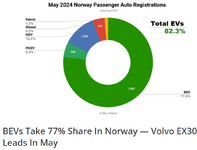ilikecoffee
Mechanical
Hi All, I am approaching my 6 th year in engineering in the automotive industry. I see a layoffs in the news and in the office. I am interested in hearing from members who have been around for a few business cycles. What can we expect ? What is typical ? Is there a way to keep my head down and avoid the slip?

